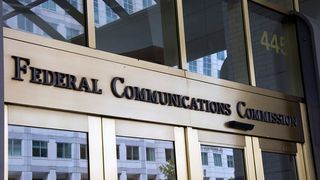Pai: It's Official Policy to Release Meeting Items in Advance

FCC Chairman Ajit Pai has officially declared an end to the pilot project of publishing the text of meeting items three weeks before they are voted, but only to declare it his policy going forward.
That came at a press conference following the FCC's public meeting.
The chairman early on instituted the test as part of his transparency agenda.
Asked at the meeting about the status of the test, he first said it had been a success and making it permanent was certainly something he was willing to discuss with his colleagues and "working with the commission staff to determine the feasibility and benefits of doing so.
But after a pause, he continued: "In fact, you know what, let's just go ahead and declare the pilot over. It is not the official policy of the FCC to release these at least three weeks in advance of the monthly meeting."
Among the items there is keen interest in getting that early read on are reclassifying ISPs, launching the ATSC 3.0 transmission standard, and media ownership deregulation.
As leader of the loyal opposition under former FCC chairman Tom Wheeler, Pai was a frequent critic of FCC process, saying it lacked transparency—he has long argued for letting the public know what is being voted on at public meetings—and said it was the kind of regulatory certainty that a competitive marketplace needs.
Related: FCC's Pai: No Talks With White House About License Challenges
Broadcasting & Cable Newsletter
The smarter way to stay on top of broadcasting and cable industry. Sign up below
Wheeler argued that the text of documents being voted was still work product and that what should be published was the final version, which includes edits that may come after the vote. To his credit, he generally got those versions out faster than his predecessors.
Separately, in testimony for a Wednesday (Oct. 25) FCC oversight hearing in the House Communications Subcommittee, commissioner Michael O'Rielly called on Congress to bake that policy into law so it applies no matter who is chairman.
A provision to do so was struck from an FCC reauthorization legislation passed out of the Communications Subcommittee and O'Rielly said he hoped it could be included as the full committee considers the legislation. The subcommittee signaled some provisions had been excluded for the sake of getting the bill to full committee, where various asks would be tweaked and revisited.
O'Rielly called the pilot--now official policy--a tremendous success in reducing "item confusion," and said there were a large number who had been converted to the practice.
Contributing editor John Eggerton has been an editor and/or writer on media regulation, legislation and policy for over four decades, including covering the FCC, FTC, Congress, the major media trade associations, and the federal courts. In addition to Multichannel News and Broadcasting + Cable, his work has appeared in Radio World, TV Technology, TV Fax, This Week in Consumer Electronics, Variety and the Encyclopedia Britannica.

